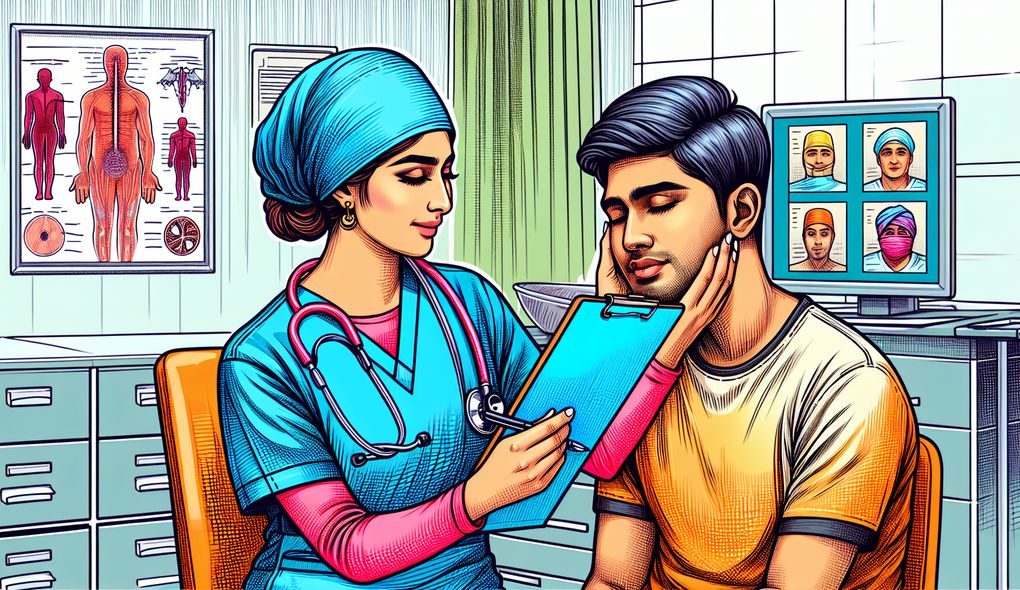What is your approach to dealing with patients who have complex, multifaceted pain conditions?
INTERMEDIATE LEVEL

Sample answer to the question:
When managing patients with complex pain conditions, I try to utilize a holistic approach. I first complete a detailed assessment of their issue to determine the root cause of the pain. That might involve understanding the history of the pain, medical tests, and their lifestyle habits. I then create a pain management plan tailored to the patient's needs that can involve medication, lifestyle changes, or even procedures such as injections. Building a good rapport with my patients is crucial, so I make sure to communicate effectively and empathize with their situation.
Here is a more solid answer:
In dealing with complex, multifaceted pain conditions, my primary focus is twofold: thorough assessment and personalized treatment. Each case starts with comprehensive patient assessment, inquiring about their pain history, severity, triggers, and influences. I also review their medical history and lifestyle. Once I have a full understanding, I develop a carefully tailored pain management plan based on their unique needs. This may involve prescribing pain medication, advising lifestyle changes, and implementing specialized techniques like nerve blocks. I ensure that the plan aligns with the recommendations or treatments suggested by other members of the healthcare team to provide a unified approach. Naturally, I make it a priority to continuously update my knowledge about the latest in pain management and apply these advancements when appropriate.
Why is this a more solid answer?
This answer is more comprehensive, reflecting the clinician's thorough approach to the assessment and treatment of pain. It explicitly showcases the candidate’s understanding of pharmacology, the coordination of care, and commitment to staying updated on the latest techniques in pain management. However, it could give additional details on the interaction and education provided to the patients.
An example of a exceptional answer:
For patients with complex pain conditions, my approach is an integration of keen analysis, personalized treatment, collaborative care, continuous learning, and empathetic patient education. Starting with a meticulous one-on-one consultation, I delve into the history, nature, and impact of their pain, all within the broader context of their overall health and lifestyle. I use this baseline to develop a multidimensional pain management plan that might include pharmacological treatments, nerve blocks, and other procedures. But I'm not working in isolation. I regularly collaborate with other medical professionals, such as physicians and physical therapists, synthesizing our insights into a cohesive and tailored treatment approach. As new advancements and findings emerge in pain management, I strive to incorporate them into patient care. Perhaps most importantly, I dedicate time to educate patients and their families about their conditions and treatments, fostering understanding and equipping them with techniques to manage pain at home. I believe clear, empathetic communication is like a balm that makes physical treatments more effective.
Why is this an exceptional answer?
This exceptional answer covers all aspects of the job description, presenting a picture of a candidate who is deeply committed to both the craft and human side of pain management. It explicitly mentions all the required skills, including comprehensive patient assessment, formulation of individualized pain management plans, proficiency in performing pain management procedures, and knowledge in pharmacology. It also highlights the candidate’s communicative abilities, collaboration with a healthcare team, dedication to continuing education, and an empathetic approach towards patient education.
How to prepare for this question:
- Be sure to explain the importance of comprehensive and personalized pain assessments in treating complex pain conditions.
- Provide examples of how you have collaborated with other healthcare professionals in delivering care.
- Speak about your commitment to ongoing professional development in pain management and how it benefits patients.
- Emphasize your ability to empathize with patients, educate them about their condition, and help them become active participants in their own pain management.
- Summarize your understanding of pain management medications and techniques.
What are interviewers evaluating with this question?
- Pain assessment and treatment
- Communication and interpersonal skills
- Development of comprehensive pain management plans
- Knowledge of pharmacology
- Continuing education in pain management

